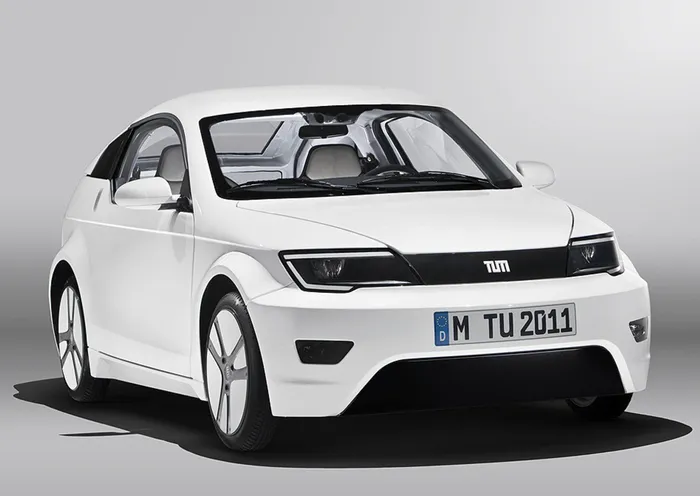BMW + university = viable battery car

Elektrofahrzeug-Prototyp "MUTE" der TU Muenchen - im Rahmen des vom Bundesministerium für Bildungs und Forschung gefoerderten Projekts Visio.M wird der "MUTE" als Erprobungstraeger verwendet - Bild: Florian Lehmann / TU Muenchen - frei fuer Berichterstattung ueber Visio.M-Projekt Elektrofahrzeug-Prototyp "MUTE" der TU Muenchen - im Rahmen des vom Bundesministerium für Bildungs und Forschung gefoerderten Projekts Visio.M wird der "MUTE" als Erprobungstraeger verwendet - Bild: Florian Lehmann / TU Muenchen - frei fuer Berichterstattung ueber Visio.M-Projekt
Electric vehicles powered from renewable energy sources are an attractive option for urban mobility; they're quiet and pollution-free. Up to now, however, battery cars tend to fall into two categories: conventional, full-size cars adapted to carry electric motors and big, heavy batteries (which makes them even heavier, more inefficient and more expensive than the combustion cars they're based on) or flimsy, lightweight 'Tupperware trollies' that won't meet safety standards even in third-world countries such as South Africa.
BMW, which has turned out a string of battery-powered car and scooter concepts in recent years, has learned the truth of that statement first hand. So now it has partnered with scientists from the Munich Technical University and engineers from various facets of the automotive and electrical industries in a project called Visio.M, to develop electric cars that are efficient, safe, and (relatively) inexpensive.
AMBITIOUS TARGETS
They've set themselves an ambitious target - a car with a 15kW electric motor that weighs less than 400kg (without its battery) and will meet the requirements of EU regulatory category L7e, for small conventional cars - at a price that will enable it to grab a significant share of the mass market.
Their starting point is a prototype electric vehicle called Mute, that was built at the university to explore new technologies for vehicle safety, propulsion, energy storage, and operational concepts - always from the point of view of possible large-scale production - while still achieving a level of active and passive safety equal to that of conventional small car.
Forget about mad scientists tinkering in basement garages. The project has been funded by the German federal ministry for education and research to the tune of €10.8 million (R110 million) - about a quarter of what's been spent so far on the stillborn Joule project in Cape Town.
Related Topics: